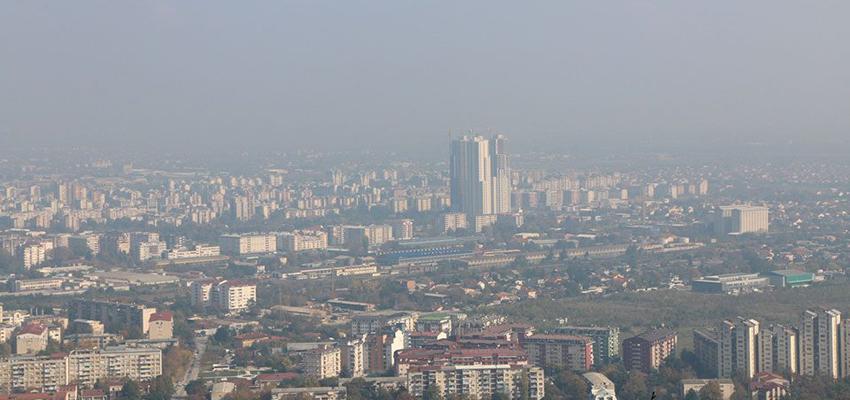
- Press release -
Skopje, 17 February 2021
Air pollution protection for citizens – challenge for central and local government
The problem of air pollution in RNM requires long-term systemic and integrated approach of all stakeholders (central/local level institutions, private sector and citizens). Activities taken in the last three years, albeit a positive step, have not achieved desired effects in reducing air pollution. Supervision and control are at low level and very small part of budget funds at central and local level are allocated for implementation of planning documents’ measures and thus the largest part of measures remain unimplemented
The State Audit Office conducted audit on the implementation of recommendations contained in the Final Performance Audit Report of 2017 on the topic "Air Quality" to assess the degree of implementation of recommendations and the adequacy of measures taken.
The audit found that out of ten audit recommendations, one is implemented, three are currently being implemented, four are partially implemented and two recommendations are not implemented.
The new set-up of the cross-sectoral group on air quality has improved institutional cooperation, management and coordination at central and local level. With the closure of the Public Healthcare Committee, overlapping of competencies of the two bodies with similar competencies in the previous audited period was avoided.
Institutions that are main creators and implementers of policies for improving air quality at central and local level continuously lack adequate, permanent and professional staff.
The Ministry of Environment and Physical Planning is carrying out project activities for setting up National Information System on Environment, to be completed by March 2021, which will provide integrated system and data access from several media (air, water, soil etc.).
Amendments to the Law on Ambient Air Quality have been proposed, to enable prompt and efficient measures, locating responsibility and appropriate penalties for non-implementation of planning documents’ measures for improving air quality.
Of the total number of inspections in 2017, 2018 and 2019, insignificant 1% were performed under the Law on Ambient Air Quality. The risk assessment methodology for environmental inspection (which is in implementation test phase) and the Draft Law on Environmental Inspection (which is in the process of adoption) offer appropriate legal solution for the functioning of a single system of environmental inspection on the entire territory of RNM.
Funds allocated for financing planning documents’ measures at central and local level are not sufficient to reduce pollutants. According to data from the State Statistical Office, the share of investments and expenditures for air protection in GDP in the reporting period 2017-2019 has decreased compared to previous years and amounts to 0.03%, while the share in the total investments and expenditures in environment is 2% in 2017 and 2018, and 2.6% in 2019. This is one reason why average annual concentrations of PM10 continue to exceed the limit values in all measuring stations except in Lazaropole.
Some progress is noted in terms of drafting planning documents at local level - in addition to the agglomeration plans for Skopje region and the municipalities of Bitola and Tetovo, plans have been adopted for the municipalities of Strumica, Veles and Kicevo. However, the largest number of municipalities where pollutants exceed limit values have not prepared plans to improve ambient air quality.
Due to the insufficient administrative capacity of competent institutions, monitoring of implementation of planning documents’ measures is not regular and complete i.e. it is done ad hoc and at request of stakeholders (EU, media and the civil society).
Completeness of data of the Pollutants Cadastre is still not ensured because more than 50% of operators holding A and B integrated environmental permits have not submitted data.
To overcome ascertained state of affairs, the audit provided guidelines for further action of the Ministry of Environment and Physical Planning, the State Inspectorate of Environment and LSGUs on the following: strengthening administrative capacity, adopting proposed legal solutions on ambient air quality and environmental inspection, setting up comprehensive National Environmental Information System and a complete database for the Environmental Cadastre, a system for preparing and monitoring planning documents and obtaining necessary financial resources for implementation thereof.
Link to the Audit Report: https://dzr.mk/mk/210217-revizija-na-uspeshnost-2020-kvalitet-na-vozdukhot-kooperativna-revizija
Press contact:
Mijalce Durgutov +389 70 358 486
[email protected]
Martin Duvnjak +389 75 268 517
[email protected]

